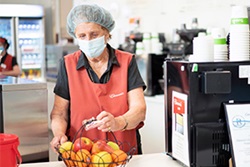2022 SMHS Excellence Awards winners
Excellence in clinical care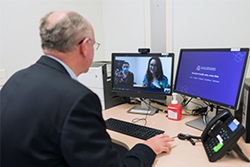
Virtual immunology clinic – Fiona Stanley Fremantle Hospitals Group To help alleviate these pressures and improve the patient experience, the establishment of the Fiona Stanley Hospital (FSH) Immunology Service telehealth clinic doubled the service’s capacity to deliver care more efficiently and closer to the patient’s home. Access to care was improved for 4,000 patients who were able to receive treatment outside of hospital. The long-term adult and paediatric wait lists were eliminated, including expediting treatment for over 1,000 children who had been waiting for an appointment. This model was subsequently extended to GPs to refer patients to an FSH clinical immunologist via videocall. It resulted in the team delivering timely, high quality, integrated patient care while building relationships and providing in-context education for participating GPs. Patients have reported high levels of satisfaction with the clinic’s services. |
Excellence in improving the patient experience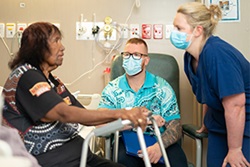 Cultural safety in the ED – Rockingham Peel Group Cultural safety in the ED – Rockingham Peel GroupAfter identifying a need for improved culturally responsive care, this Rockingham General Hospital (RGH) project created a more inclusive and safer environment for Aboriginal emergency department (ED) patients and families while connecting non-Aboriginal patients and hospital staff to culture. Aboriginal health liaison officers (AHLOs) and ED staff at RGH partnered with Aboriginal community members and health consumers to embed a culture with increased security for Aboriginal patients, decreased ‘did not wait’ rates, improved support mechanisms and direct feedback pathways for Aboriginal ED patients. Initiatives included engaging Aboriginal and non-Aboriginal staff in the formation of an ED Cultural Safety Group, face-to-face cultural awareness training for all RGH ED staff, the formation of referral pathways and a new process to support Aboriginal patients who leave the ED prematurely. Genuine partnerships between healthcare providers and Aboriginal patients and their families were created, where life experiences, views and beliefs were respected. |
Excellence in developing and engaging our staff and teams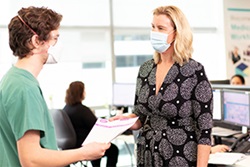
Medical workforce team – South Metropolitan Health Service Team members uphold the South Metropolitan Health Service (SMHS) values by respecting their colleagues, celebrating diversity and showing empathy to each other and customers. These service delivery focused behaviours enable the provision of end-to-end support and closure for each customer across a vast customer base. During the COVID-19 wave of February 2022 interactive initiatives enabling agility within current staffing levels were implemented. A streamlined COVID-19 close contact and positive case reporting service assisted junior medical officers to navigate leave entitlements, work remotely where possible and access rosters. The initiative also involved a new SMS system to contact doctors to fill critical vacant shifts, and a walk-in service for medical staff to discuss term allocations and leave requests, sign AHPRA paperwork and raise personal concerns. |
Excellence in strengthening partnerships
Voluntary assisted dying state-wide care navigator service – South Metropolitan Health Service Care is individualised to each person’s unique needs and the metropolitan-based service provides equitable care to consumers across WA. Even before the VAD legislation was implemented in 2021, this service worked extensively to develop strong, collaborative, respectful and enduring relationships across public, private, aged-care and community-based providers. This resulted in a shared understanding of each organisation’s position in relation to VAD and a broad collective sense of understanding and trust. The success of this relationship building was evidenced by the higher-than-expected levels of access to VAD. Within the first year of operations, over 700 contacts were received by the service and more than 170 Western Australians accessed this end-of-life choice, well above the modelling of 50-70 people. |
Excellence in innovation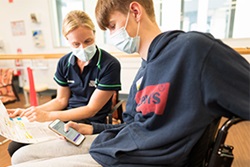
Mobile app for spinal rehabilitation patients – South Metropolitan Health Service Phase one is currently being trialled and features 29 programs to support patients’ daily schedules, provide education through images and videos and engage patients to champion their own rehabilitation through goal reflection. Partnership and open collaboration with multiple South Metropolitan Health Service (SMHS) stakeholders and the vendor’s project team was a critical success factor. Past and present patients participated in each development stage and consumer evaluation of the trial version has informed immediate improvements and priorities for ongoing development. Project outcomes will also inform the future of SMHS mobile app development. Processes and features are adaptable to other clinical departments and patient cohorts, and lessons learned will streamline the development cycle from pilot to implementation. |
Volunteer of the Year |
Researcher of the Year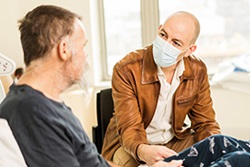 Professor Dickon Hayne, Head of Urology – Fiona Stanley Fremantle Hospitals Group Professor Dickon Hayne, Head of Urology – Fiona Stanley Fremantle Hospitals GroupProfessor Hayne’s commitment to improving treatments and outcomes for bladder cancer – a difficult-to-treat condition with decreasing survival outcomes – is widely acknowledged. His contribution to clinical knowledge and translation into clinical practice, along with demonstrated evidence from multiple national and international trials, may be key to changing clinical practice for bladder cancer patients. Professor Hayne is the coordinating primary investigator of a trial studying the efficacy of a treatment regime for high risk, non-muscle invasive bladder cancer. The trial features the world’s largest patient cohort investigating this condition and could change how the disease is managed globally. Other research activity includes developing trials in the emerging field of theranostics – a novel way of combining diagnostic imaging techniques with delivering therapy agents. Dedicated to consumer engagement, Professor Hayne also encourages medical and nursing staff to undertake research to improve service delivery and patient outcomes, and mentors junior medical staff. |
Southern Star Award
Voluntary assisted dying state-wide care navigator service – South Metropolitan Health Service Care is individualised to each person’s unique needs and the metropolitan-based service provides equitable care to consumers across WA. Even before the VAD legislation was implemented in 2021, this service worked extensively to develop strong, collaborative, respectful and enduring relationships across public, private, aged-care and community-based providers. This resulted in a shared understanding of each organisation’s position in relation to VAD and a broad collective sense of understanding and trust. The success of this relationship building was evidenced by the higher-than-expected levels of access to VAD. Within the first year of operations, over 700 contacts were received by the service and more than 170 Western Australians accessed this end-of-life choice, well above the modelling of 50-70 people. |
Chief Executive's Commitment to Excellence Award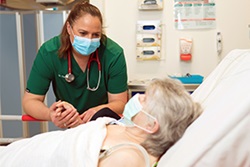 Dr Vanessa Clayden, Head of Emergency Medicine – Fiona Stanley Fremantle Hospitals Group Dr Vanessa Clayden, Head of Emergency Medicine – Fiona Stanley Fremantle Hospitals Group
Through her multifaceted role, Vanessa provides the outstanding leadership, clinical governance and operational and strategic oversight necessary to deliver excellent patient care in one of Australia’s busiest emergency departments (EDs). Vanessa’s engagement across the organisation has been vital in addressing emergency medicine challenges, nurturing system improvement and driving innovative frontline initiatives. Her commitment to improving access to care and outcomes for patients and staff includes development of a virtual service to streamline emergency medicine pathways and an emergency care centre that creates ED capacity by redirecting ambulatory patients from the ED. A true leader and fierce advocate for her team, Vanessa ensures the needs of all staff are considered in the planning of changes, new initiatives and day-to-day service delivery. She was also pivotal in establishing an ED excellence award recognising demonstrated commitment, leadership, mentorship or innovation in quality and safety, research or service development, and places patients and their families at the centre of ED clinical care. |
South Metropolitan Health Service Board Award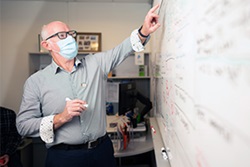
Anthony Collier, Mental Health Service Co-Director – Rockingham Peel Group An experienced MH services leader and a passionate and strong MH service advocate, Anthony led major care and service provision changes and improvement across Child and Adolescent Mental Health Services, Youth Mental Health and in two rural areas. He helped establish all three Headspace sites in South Metropolitan Health Service (SMHS), was selected to develop the SMHS MH strategic plan roadmap and developed the Youth MH Model of Care Framework. Respected by SMHS and external stakeholders, Anthony advocates for improved staff wellbeing and measures to address workforce shortages. A SMHS Aboriginal Champion, he also proactively increases recruitment opportunities for Aboriginal applicants. Anthony is committed to ensuring consumer involvement and consultation in MH service provision, provides staff support to the Rockingham Peel Group MH consumer and carer guidance group, and co-chairs the only regional sub-network for the Mental Health Commission. 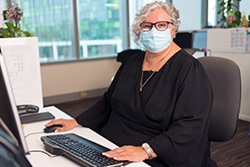
Nola Naylor, Director Aboriginal Health Strategy – South Metropolitan Health Service Nola is an outstanding leader and mentor who embodies cultural respect and models these behaviours in her daily work. At an organisational level, she led implementation of the SMHS Aboriginal Health Strategy and is dedicated to increasing Aboriginal representation in the SMHS workforce. She was also instrumental in making Aboriginal health everyone’s business at SMHS through the Aboriginal Health Champions program. A strong advocate for cultural security, Nola’s in-depth knowledge of the spiritual, cultural and health needs of Aboriginal people is unparalleled and she supports, cares and guides Aboriginal clients who are away from home and feel disconnected from family. Nola’s genuine compassion and empathy enable her to develop meaningful interactions with stakeholders across and external to SMHS, and her overwhelming positivity and humility drive her many achievements. |


